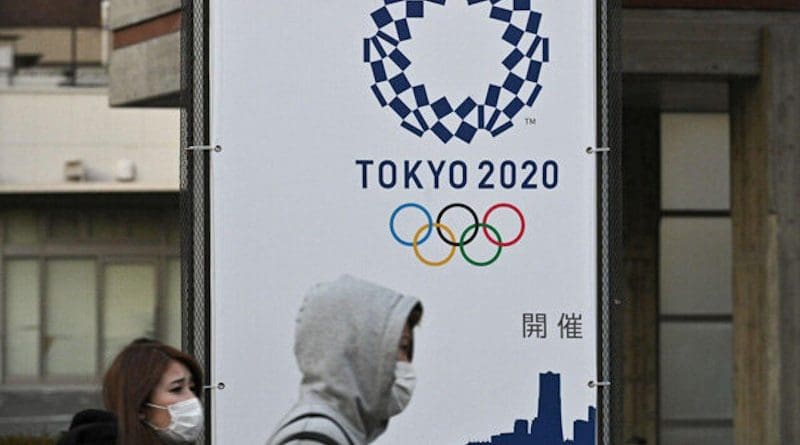COVID-19 And Japan Olympics: Evaluating A Range Of Imperfect Choices – Analysis
By IPCS
By Dr Sandip Kumar Mishra*
Japan is to host the Tokyo Summer Olympics on 23 July-8 August 2021. Initially scheduled for July-August 2020, it was postponed because of the COVID-19 pandemic. There are concerns that if the Games happen now, even after a year’s delay, it may lead to a further spread of the pandemic. However, Japan and the International Olympic Council (IOC) are eager to go ahead with the plan, and even the G-7 countries have reportedly expressed their “strong support.”
Japan considers the event a symbol of its credibility and reliability. A positive economic impact is also expected. On the flipside, the appropriateness of hosting such a large event at this time is an issue because it may led to spread of the pandemic.
Japan’s daily COVID-19 count saw its fourth peak around 12 May, when more than 7,500 new cases were reported. This led Tokyo to impose emergency in ten areas. On 20 June, it was brought down to the quasi-emergency level, and the plan is to do away with the quasi-emergency by 11 July. Japan has been vaccinating around one million citizens every day, and until 5 July, roughly 12.65 per cent of the population had been fully vaccinated. In the last few weeks, daily cases have come down significantly, and on 5 July, only 342 new cases were reported in Japan.
Questioning Propriety
Opinion on whether the Games should take place is divided, both within and outside Japan. In different opinion polls conducted in Japan, 70-83 per cent of those polled felt that the games should not be held. The pandemic has created several logistics and other problems. There are also apprehensions that the low rate of vaccinations in Japan and other countries as well as the rise of new variants of the virus may lead to a rise in cases in the country and beyond.
In the midst of a pandemic, it is not appropriate for thousands of people from across the world (even if all are vaccinated) to be allowed to gather in one place and interact (even if all possible precautions are taken, gatherings limited, or no spectators allowed). Hosting 11,000 athletes from 205 countries and their support staff without exposing them to the virus is going to be a significant challenge.
There are concerns that the Games could divert attention from the fight against the virus. One could also argue that even if it is held, the joy and celebration that normally accompany it may not be the same as earlier. Further, a point can also be made about the moral insensitivity of hosting the event when a large part of the world is still suffering from the pandemic.
The Show Must Go On
The counter-argument could be that, unlike last year, things are different. And even if not fool-proof, the show must go on. Now, Japan and the world have access to vaccines (at least for the players and support staff), and the Games could be held while taking the maximum possible precautions. The pandemic may continue well beyond 2021, and rather than being overwhelmed by fear, normalcy must instead be restored with sufficient caution.
In the midst of economic contractions across the globe, the Olympics may bring at least some vitality to economies. Its cancelation would cost Japan around US$ 17 billion. It could also be argued that the Games is a once-in-a-lifetime opportunity for many athletes who put in a lot of hard work preparing for it. Further, in the gloomy mood of the pandemic, the \celebratory spirit may raise global morale.
An Imperfect but Sensible Choice?
It is therefore indeed a tough choice for Japan, the IOC, and participating countries. Despite the widespread apprehension, Seiko Hashimoto, president of Tokyo 2020, claimed that she was “100%” sure of the Games being held. Deciding for or against hosting the Olympics are both imperfect choices given their pros and cons. However, the search for normalcy, given the ongoing pandemic and its sporting, economic, and psychological logic, must be emphasised at all times.
Japan has been placed in the hot seat. A successful event will have a positive impact on Japan’s image and economy, as well as the global mood. But, if it plays a role in a further spread of the virus, both Japan and the IOC will earn themselves a bad name. Since we don’t have the benefit of hindsight here, and the Games are apparently on-track, we should hope that the event concludes without insurmountable challenges, and wish it all the best.
*Dr Sandip Kumar Mishra is Associate Professor at the Centre for East Asian Studies, SIS, JNU, & Distinguished Fellow, IPCS.

